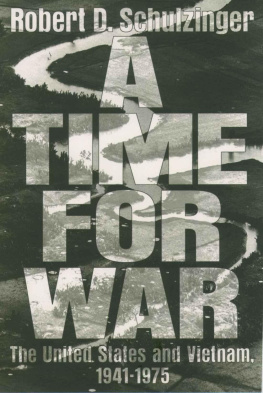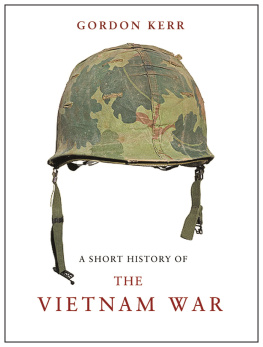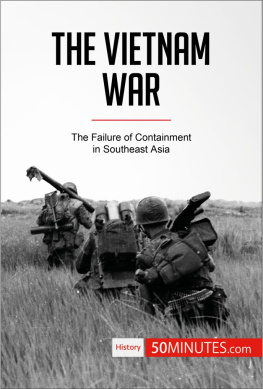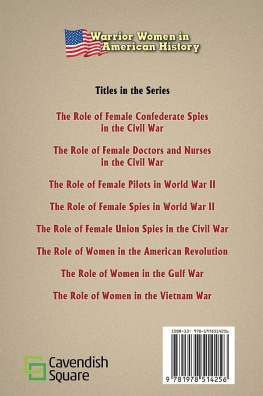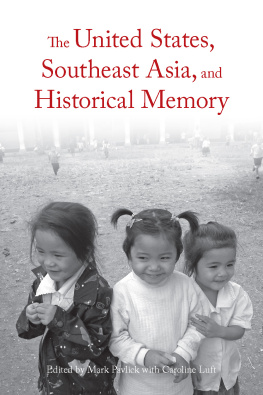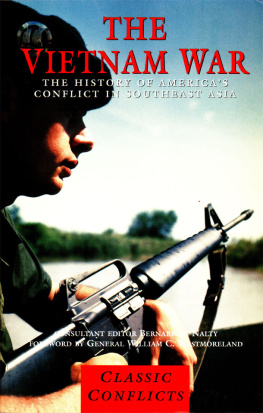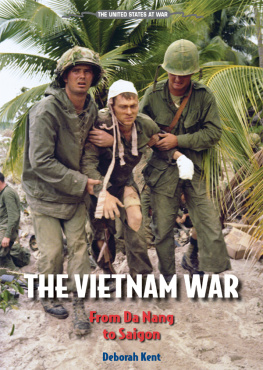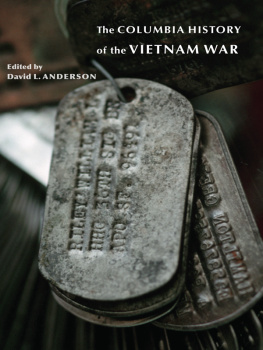Robert D. Schulzinger - A Time for War: The United States and Vietnam, 1941-1975
Here you can read online Robert D. Schulzinger - A Time for War: The United States and Vietnam, 1941-1975 full text of the book (entire story) in english for free. Download pdf and epub, get meaning, cover and reviews about this ebook. year: 1997, publisher: Oxford University Press, genre: Politics. Description of the work, (preface) as well as reviews are available. Best literature library LitArk.com created for fans of good reading and offers a wide selection of genres:
Romance novel
Science fiction
Adventure
Detective
Science
History
Home and family
Prose
Art
Politics
Computer
Non-fiction
Religion
Business
Children
Humor
Choose a favorite category and find really read worthwhile books. Enjoy immersion in the world of imagination, feel the emotions of the characters or learn something new for yourself, make an fascinating discovery.
- Book:A Time for War: The United States and Vietnam, 1941-1975
- Author:
- Publisher:Oxford University Press
- Genre:
- Year:1997
- Rating:3 / 5
- Favourites:Add to favourites
- Your mark:
A Time for War: The United States and Vietnam, 1941-1975: summary, description and annotation
We offer to read an annotation, description, summary or preface (depends on what the author of the book "A Time for War: The United States and Vietnam, 1941-1975" wrote himself). If you haven't found the necessary information about the book — write in the comments, we will try to find it.
In A Time for War, Schulzinger paints a vast yet intricate canvas of more than three decades of conflict in Vietnam, from the first rumblings of rebellion against the French colonialists to the American intervention and eventual withdrawal. His comprehensive narrative incorporates every aspect of the war--from the military (as seen in his brisk account of the French failure at Dienbienphu) to the economic (such as the wage increase sparked by the draft in the United States) to the political. Drawing on massive research, he offers a vivid and insightful portrait of the changes in Vietnamese politics and society, from the rise of Ho Chi Minh, to the division of the country, to the struggles between South Vietnamese president Diem and heavily armed religious sects, to the infighting and corruption that plagued Saigon. Schulzinger reveals precisely how outside powers--first the French, then the Americans--committed themselves to war in Indochina, even against their own better judgment. Roosevelt, for example, derided the French efforts to reassert their colonial control after World War II, yet Truman, Eisenhower, and their advisers gradually came to believe that Vietnam was central to American interests. The authors account of Johnson is particularly telling and tragic, describing how president would voice clear headed, even prescient warnings about the dangers of intervention--then change his mind, committing Americas prestige and military might to supporting a corrupt, unpopular regime. Schulzinger offers sharp criticism of the American military effort, and offers a fascinating look inside the Nixon White House, showing how the Republican president dragged out the war long past the point when he realized that the United States could not win. Finally, Schulzinger paints a brilliant political and social portrait of the times, illuminating the impact of the war on the lives of ordinary Americans and Vietnamese. Schulzinger shows what it was like to participate in the war--as a common soldier, an American nurse, a navy flyer, a conscript in the Army of the Republic of Vietnam, a Vietcong fighter, or an antiwar protester.
In a field crowded with fiction, memoirs, and popular tracts, A Time for War will stand as the landmark history of Americas longest war. Based on extensive archival research, it will be the first place readers will turn in an effort to understand this tragic, divisive conflict.
Robert D. Schulzinger: author's other books
Who wrote A Time for War: The United States and Vietnam, 1941-1975? Find out the surname, the name of the author of the book and a list of all author's works by series.

